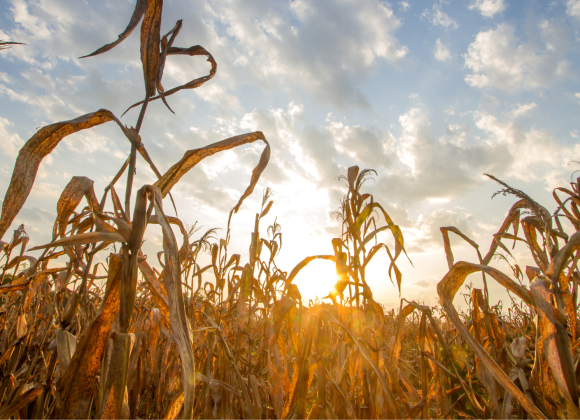A unique blend of traditional and modern techniques defines Indian agriculture. Farmers continue to use organic fertilizers and crop rotation while also adopting mechanization, genetically modified crops, and hybrid seeds to increase productivity. However, a significant portion of Indian agriculture remains dependent on monsoons, though expanding irrigation systems, including canals, tube wells, and drip irrigation, aim to mitigate this reliance. Livestock and dairy farming play a crucial role, with India being the largest producer of milk and a major contributor to the poultry and livestock industry. Despite its vast potential, a large number of Indian farmers are small and marginal landholders, making them vulnerable to climate change, market fluctuations, and financial instability. To support the sector, the government implements various policies such as the Minimum Support Price (MSP), Pradhan Mantri Kisan Samman Nidhi (PM-KISAN), and multiple irrigation schemes. Furthermore, agriculture fuels several agro-based industries, including food processing, textiles, dairy, and biofuels.
Sustainable farming Practices and its future
Sustainable agriculture refers to agricultural systems that persistently increase environmental, economic, and social well-being while assuring future food production. Such designed agriculture meets natural resource conservation needs, soil fertility enhancement, chemical input reduction, and biodiversity promotion. Of great concern here are strategies such as crop rotation, organic agriculture, agroforestry, integrated pest management, water conservation techniques, regenerative agriculture, and others. It offers security regarding present and future foods without destroying ecosystems and helps achieve environmental sustainability and the sustaining of farmers’ livelihoods.
Need of Sustainable Farming Practices in India
The need for sustainable farming practices in India has become more urgent due to challenges like soil degradation, excessive use of chemical fertilizers, and declining soil fertility. Water scarcity, caused by over-extraction of groundwater for irrigation, has led to a growing crisis in many regions. The impacts of climate change, including rising temperatures, unpredictable monsoons, and extreme weather events, threaten agricultural productivity. Additionally, monocropping and deforestation contribute to the loss of biodiversity, while the increasing use of chemicals in food production raises serious health concerns. To counter these challenges, sustainable methods such as organic farming, crop diversification, agroforestry, precision farming, and advanced water conservation techniques are necessary to create a more resilient and eco-friendly agricultural system.
Some of the Sustainable Practices

Crop Rotation
Crop rotation is a sustainable farming practice that involves growing different types of crops in a specific sequence on the same land over successive seasons. Instead of planting the same crop repeatedly, farmers alternate crops based on their nutrient needs and growth patterns. This method helps maintain soil fertility, reduce pests and diseases, and improve overall crop productivity.
Importance of Crop Rotation
- Soil Fertility Preservation: Different crops have varying nutrient requirements. Crop rotation prevents soil nutrient depletion by allowing the land to naturally replenish essential minerals.
- Pest and Disease Control: Repeatedly growing the same crop attracts pests and pathogens specific to that plant. Rotating crops disrupts their life cycles, reducing infestations.
- Increased Crop Yield: Healthier soil leads to better plant growth, resulting in higher yields over time.
- Better Water Management: Rotating crops with different water needs helps conserve groundwater and maintain moisture levels in the soil.
Some of the Sustainable Practices
Organic Farming
Organic farming is a sustainable agricultural practice that relies on natural inputs and ecological processes to grow crops and raise livestock. It avoids synthetic fertilizers, pesticides, genetically modified organisms (GMOs), and chemical additives, instead using compost, crop rotation, biological pest control, and natural fertilizers to maintain soil health and biodiversity.

Importance of Organic Farming
- Eco-Friendly and Sustainable: It reduces environmental pollution by avoiding harmful chemicals, preserving ecosystems, and promoting biodiversity.
- Health Benefits : Organically grown food is free from chemical residues, making it safer and healthier for consumers.
- Better Nutritional Value: Studies suggest that organic produce contains higher levels of essential nutrients and antioxidants compared to conventionally grown crops.
Integrated Pest Management
Integrated Pest Management (IPM) is a sustainable and eco-friendly approach to controlling pests in agriculture. It combines multiple techniques to minimize the use of chemical pesticides while effectively managing pest populations. IPM focuses on prevention, monitoring, and control using biological, mechanical, cultural, and chemical methods in a balanced way.

Importance of Integrated Pest Management
- Reduces Chemical Use: Minimizes reliance on synthetic pesticides, reducing environmental pollution and health risks.
- Prevents Pest Resistance: Reduces the chances of pests developing resistance to pesticides by using diverse control strategies.
- Supports Food Safety: Lowers chemical residues in food, making agricultural products healthier for consumers.
- Adapts to Local Conditions: IPM strategies can be customized based on specific crops, pests, and environmental conditions.
Water Conservation
Water conservation is a crucial aspect of sustainable farming, ensuring the efficient use of water resources for long-term agricultural productivity. With increasing water scarcity due to climate change, over-extraction, and pollution, farmers must adopt water-saving techniques to maintain soil health and crop yields while reducing environmental impact.

Importance of Water Conservation
- Ensures Long-Term Water Availability: Prevents depletion of groundwater and surface water resources for future generations.
- Improves Crop Productivity: Provides adequate water supply for crops, ensuring healthy growth and better yields.
- Minimizes Water Wastage: Encourages efficient irrigation techniques like drip irrigation, sprinkler systems, and rainwater harvesting.
- Prevents Soil Degradation: Reduces soil erosion and salinization caused by excessive irrigation
Regenerative Agriculture
Regenerative agriculture is a sustainable farming approach that focuses on restoring soil health, enhancing biodiversity, and improving ecosystem balance while producing high-quality crops. Unlike conventional farming, which often depletes natural resources, regenerative agriculture rebuilds soil organic matter, enhances water retention, and promotes long-term agricultural resilience.

Importance of Regenerative Agriculture
- Improves Soil Health: Increases soil fertility and microbial activity by using cover crops, composting, and crop rotation.
- Enhances Carbon Sequestration: Reduces greenhouse gases by capturing atmospheric carbon in the soil, mitigating climate change.
- Boosts Biodiversity: Encourages natural pollinators, beneficial insects, and diverse plant species, creating a balanced ecosystem.
- Prevents Soil Erosion: Strengthens soil structure, preventing nutrient loss, desertification, and land degradation.
Best Ways for Sustainable Agriculture Management
- On-site Soil Health Monitoring: On-site soil health monitoring is the regular assessment of soil properties and conditions directly in the field to evaluate its fertility, structure, moisture content, and biological activity. It helps farmers make informed decisions about crop management, fertilization, and sustainable farming practices.
- Efficient Resource Use:Efficient resource use in agriculture refers to the optimal utilization of natural and agricultural inputs like water, soil, fertilizers, energy, and labor to maximize productivity while minimizing waste and environmental impact.
- Climate-resilient crops: Climate-resilient crops are plant varieties specifically bred or adapted to withstand extreme weather conditions such as droughts, floods, heatwaves, and unpredictable rainfall patterns. These crops play a crucial role in ensuring food security and agricultural sustainability in the face of climate change.
- Technology Integration: Technology integration in agriculture involves the use of advanced tools, digital solutions, and automation to enhance productivity, efficiency, and sustainability in farming. Modern agricultural technologies help optimize resource use, reduce environmental impact, and improve overall crop yields.
- Training Programs for Farmers: Training programs for farmers play a crucial role in enhancing agricultural skills, improving productivity, and promoting sustainable farming practices. These programs equip farmers with modern techniques, scientific knowledge, and market insights, helping them adapt to changing environmental and economic conditions.
- Government and Policy Support: Government policies and support initiatives play a vital role in strengthening the agricultural sector by providing financial assistance, technological advancements, infrastructure development, and market access. Various schemes and policies focus on improving farmer welfare, sustainable farming, and rural development.
For more information about Sustainable Agriculture Practices & Their management Click here
NIFA’s impact on sustainable farming practices
The National Institute of Food and Agriculture (NIFA) plays a vital role in advancing sustainable farming by supporting research, education, and outreach programs. It funds innovative projects that focus on developing climate-resilient crops, improving soil health, and promoting efficient water management techniques. NIFA also provides training and resources to farmers, helping them adopt sustainable agricultural practices that enhance productivity while protecting the environment. By investing in regenerative agriculture, organic farming, and integrated pest management, the institute contributes to long-term food security and ecosystem resilience. Additionally, its efforts in climate change mitigation, such as carbon sequestration and reducing greenhouse gas emissions, further support sustainable agricultural systems. Through these initiatives, NIFA ensures that agriculture remains productive, resource-efficient, and environmentally responsible for future generations.




